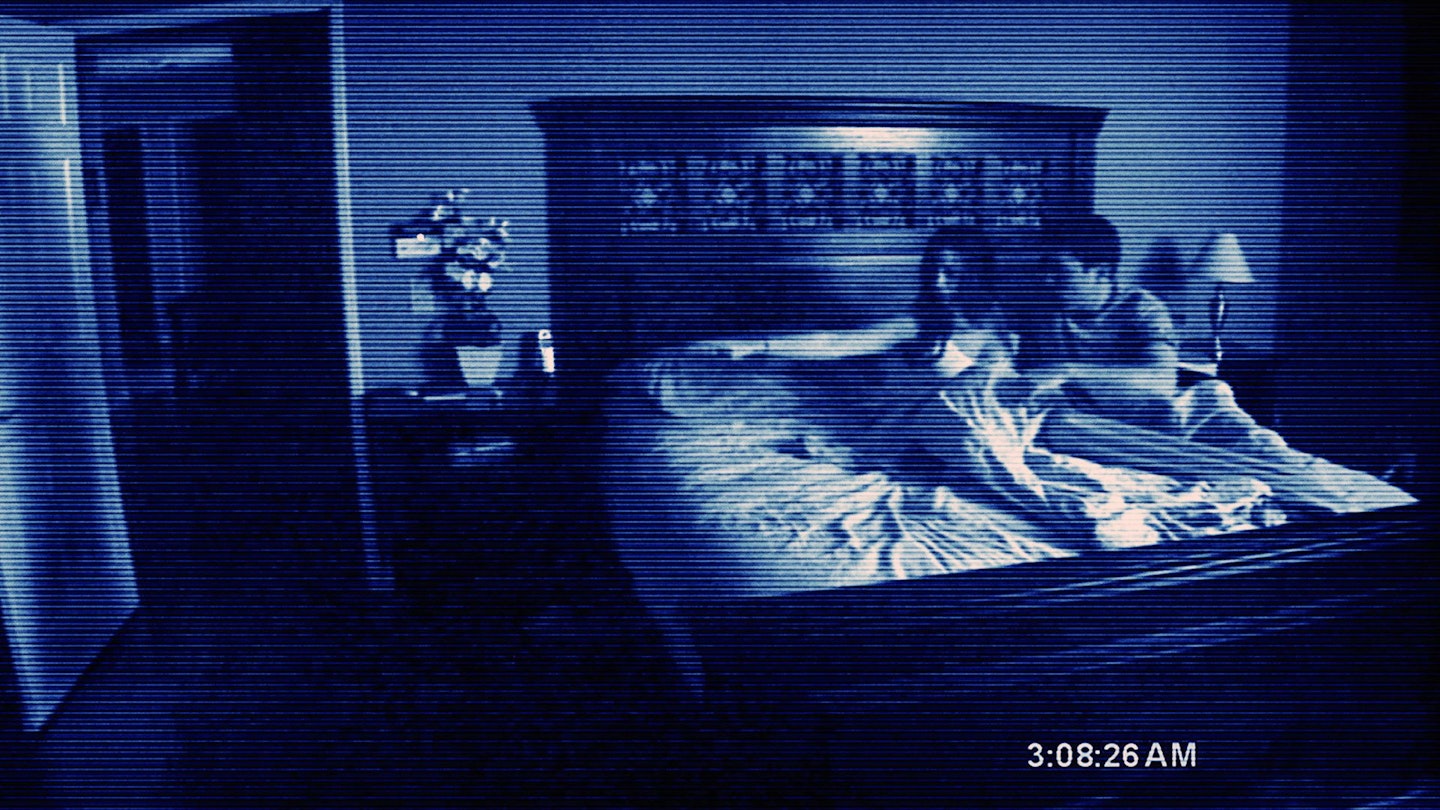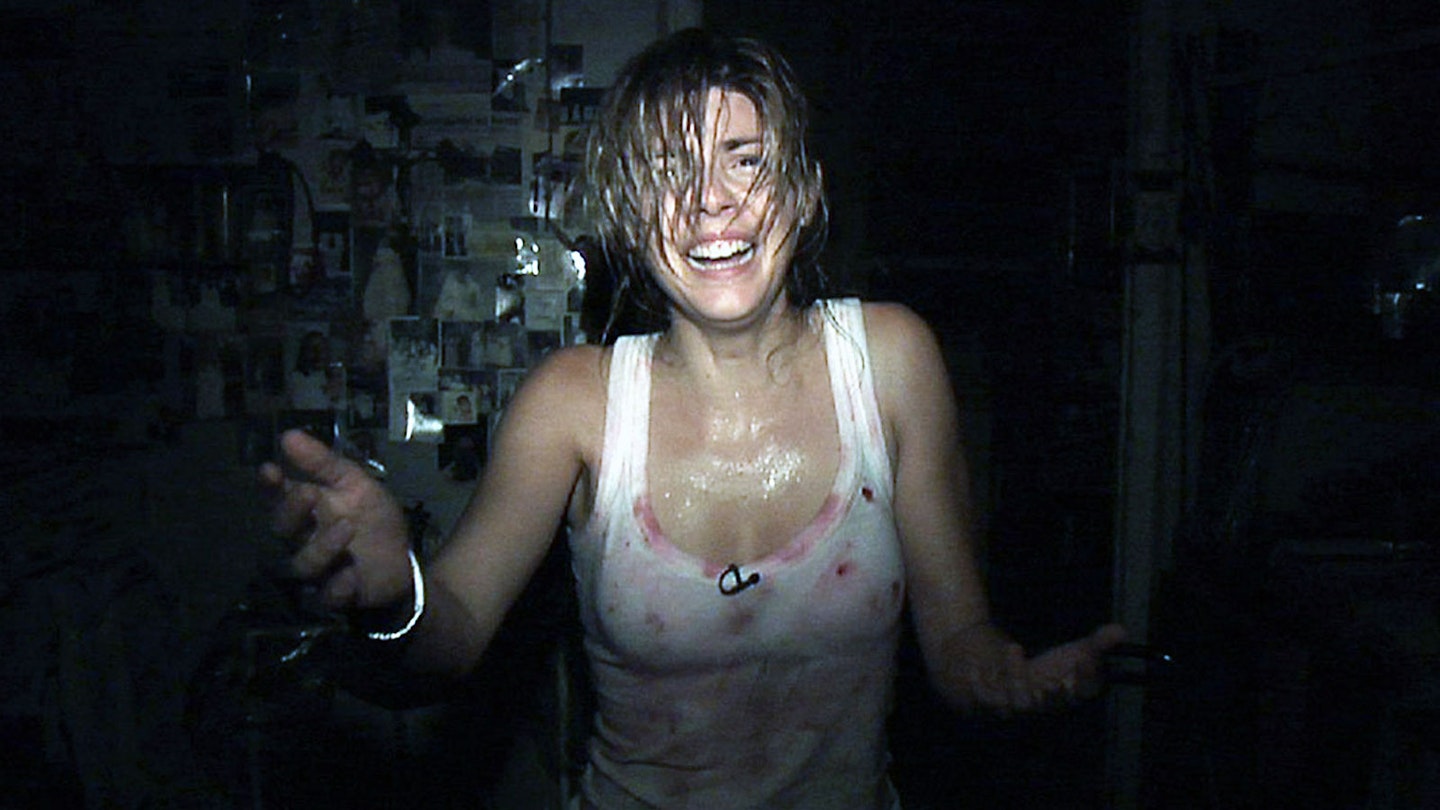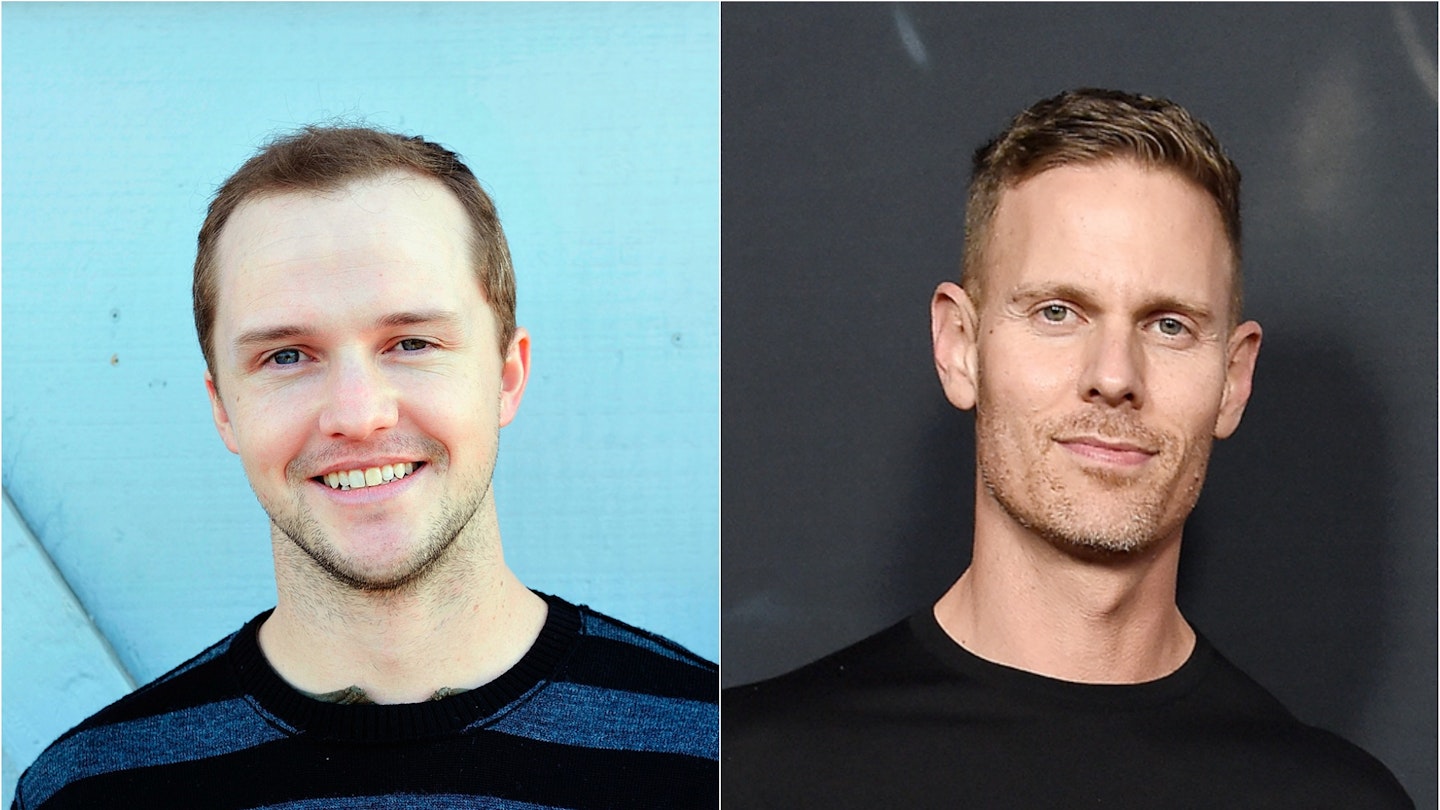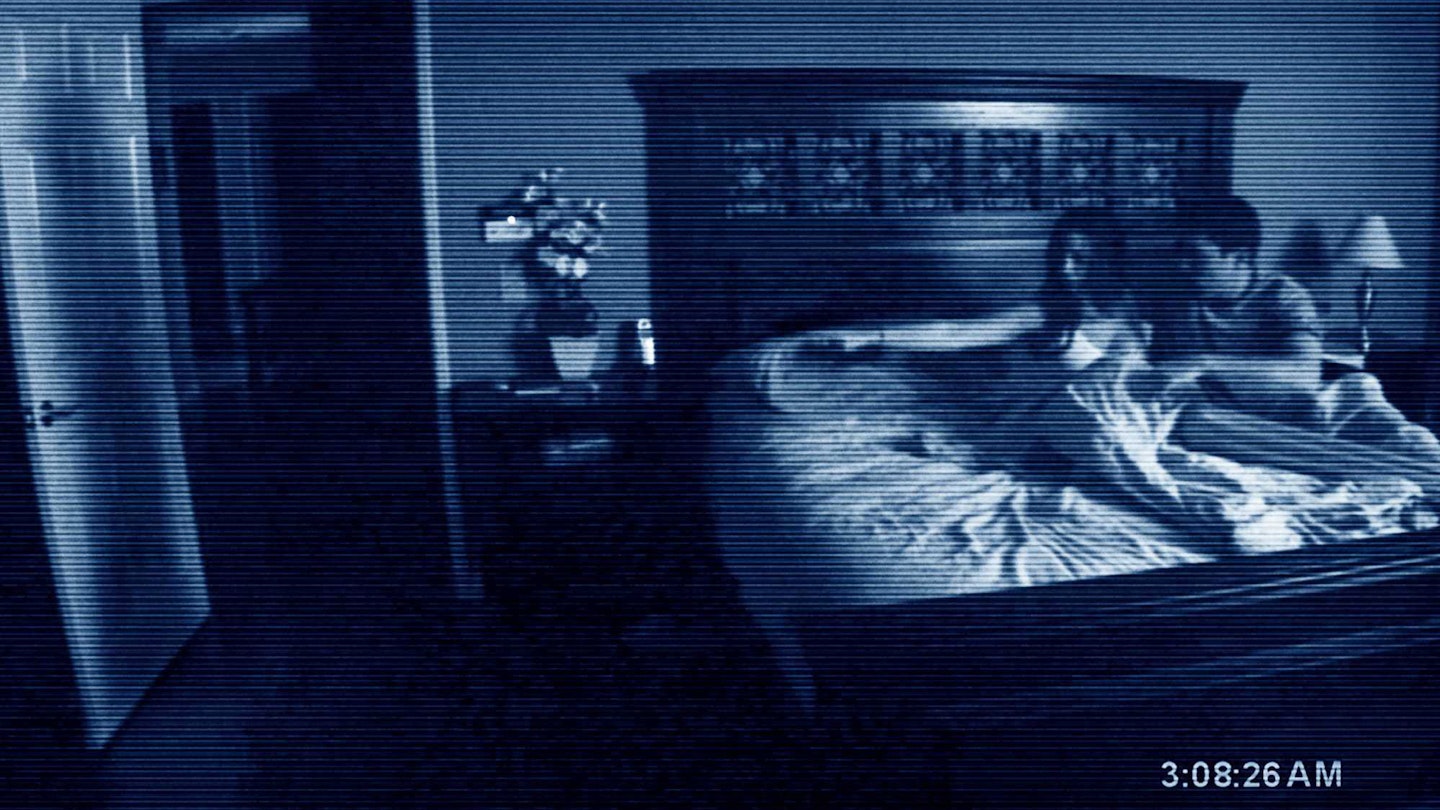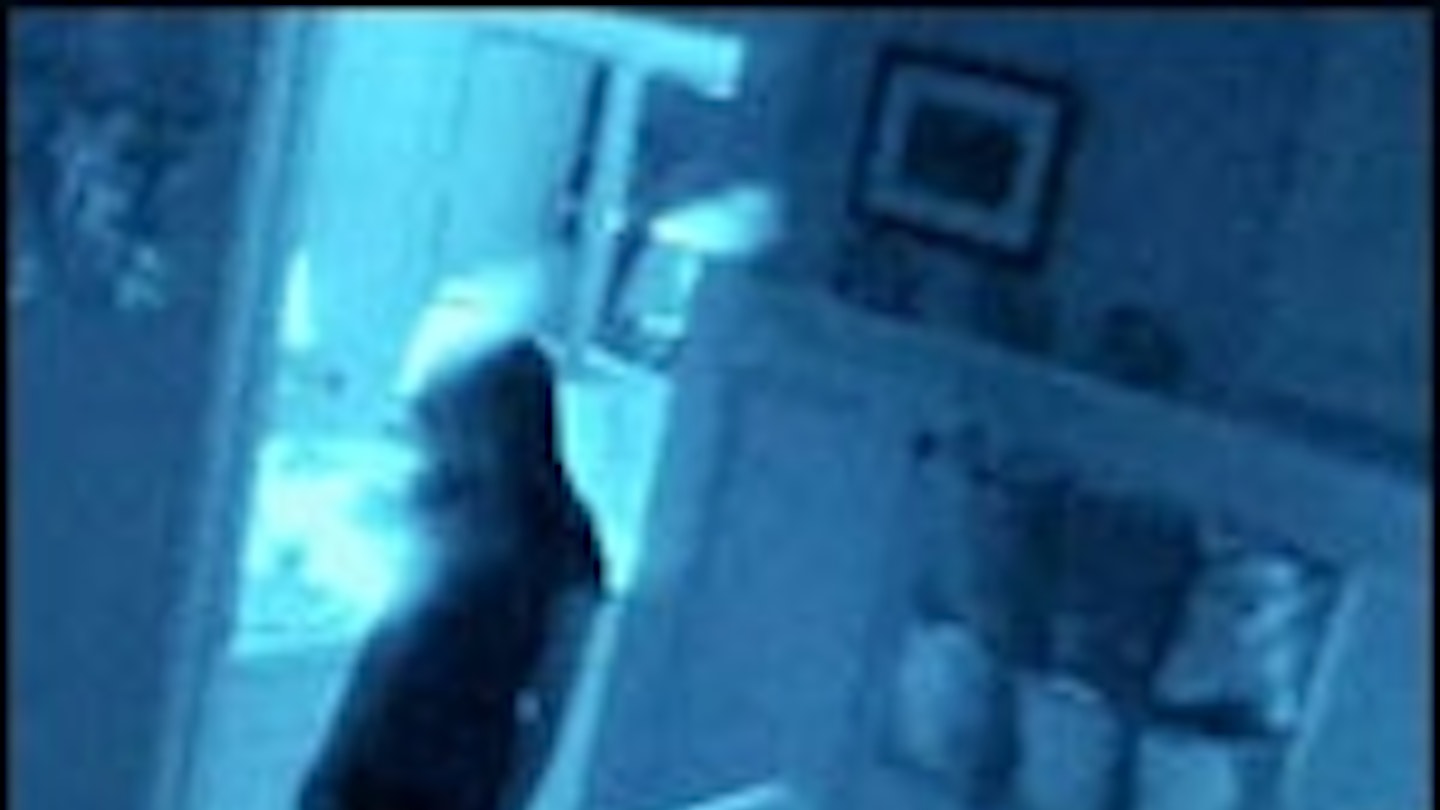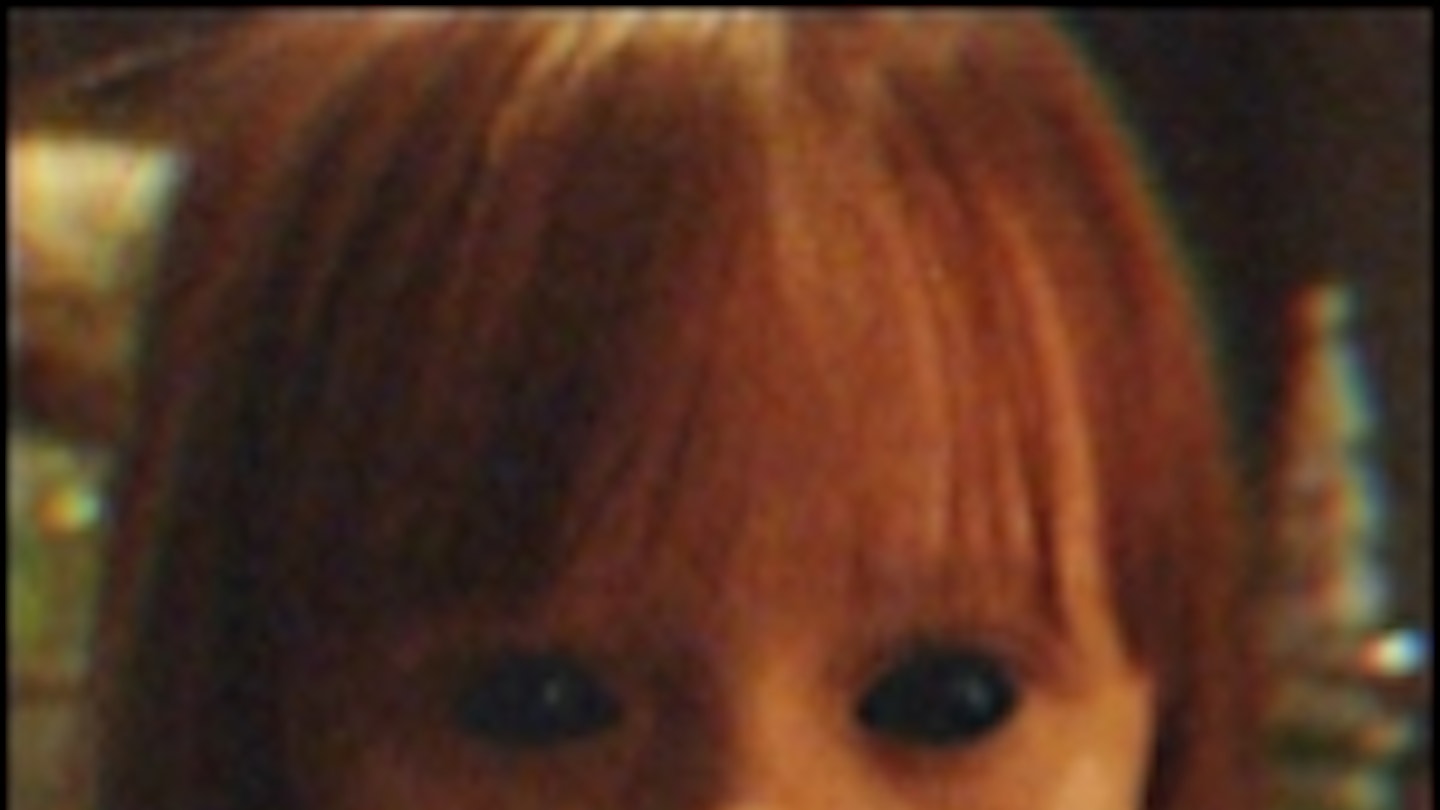If you want to get ahead in modern Hollywood, work in the Lost Property department. Ever since the Blair Witch tapes were discovered in ’99, there’s been enough ‘found footage’ movies to keep Cash Converters in second-hand cams for a year. After the likes of [•Rec] and Cloverfield and a feeling of Blair Witch burnout, you’d think there were few shocks left in the subgenre, but when a film turns even Steven Spielberg into a gibbering wreck, that’s a gibber worth investigating.
Shot over seven days with a budget of $15,000, Paranormal Activity’s less-is-more approach isn’t just in the production — it’s on the screen. Here’s a movie so brutally committed to simplicity, it doesn’t even do plot: just a situation, repeated over and over again, with the deadening regularity of a bad recurring dream. A couple are terrorised by an unseen force. First, they try to film it — then they fight to stay alive. And that’s it. Split between day (where Katie and Micah survey the aftermath) and night, we’re slowly drawn into a loop of escalating dread — and it conditions you into a state of anticipation with a minimal masterstroke. Each time the film goes nocturnal, the footage switches, not to shakycam, but to the same static bedroom shot. Because the camera never moves, you’re encouraged to scrutinise every single shadow. When your senses are heightened to that extent, any sudden moves deliver twice the force.
Better still, it resists explanation. Minus a series of ominous footprints, the unknown stays unknown; the entity has no name, no past and no apparent motive. Oren Peli might be a first-time filmmaker, but he’s a brave one — against the trend of explicit torture porn, and armed with a thumping sound design, he leaves everything to the imagination. It’s only as scary as you make it.
Weirdly, there are laughs. If we compile the Worst Movie Boyfriends, Micah Sloat’s alpha-male is a dead cert. At first, he seems driven by that male urge to protect and solve; soon enough, he’s turning his girlfriend’s distress into his own surveillance project, just falling short of knocking up a Ouji board in the shed. He’s simply too agonising to feel anything for but, truth is, there wouldn’t be much of a movie without him.
Which, really, marks the inbuilt weakness of the reality horror format. For all its authentic edge, this is still pulpy poltergeist fiction, and the characters are fixed onto the rails of narrative convention. Peli can only keep the wheels on the ghost train hidden for so long, and the final third caves in to some hokey horror tropes (don’t- go-in-the-loft!) and a climax that delivers a shuddering jolt but, on further scrutiny, feels suspiciously neat. In search of a thrill, the film loses a little of its ‘realness’.
This is, however, very much an experience any horror fan (hell, anyone with a working nervous system) should consider. Primarily because it’s so successful at turning something as mundane as a slammed door into a skin-crawling event. Next time you hear something go bump in the night, there’s a chance — just a chance — that thoughts will turn to that static bedroom... and a hint of something moving.
